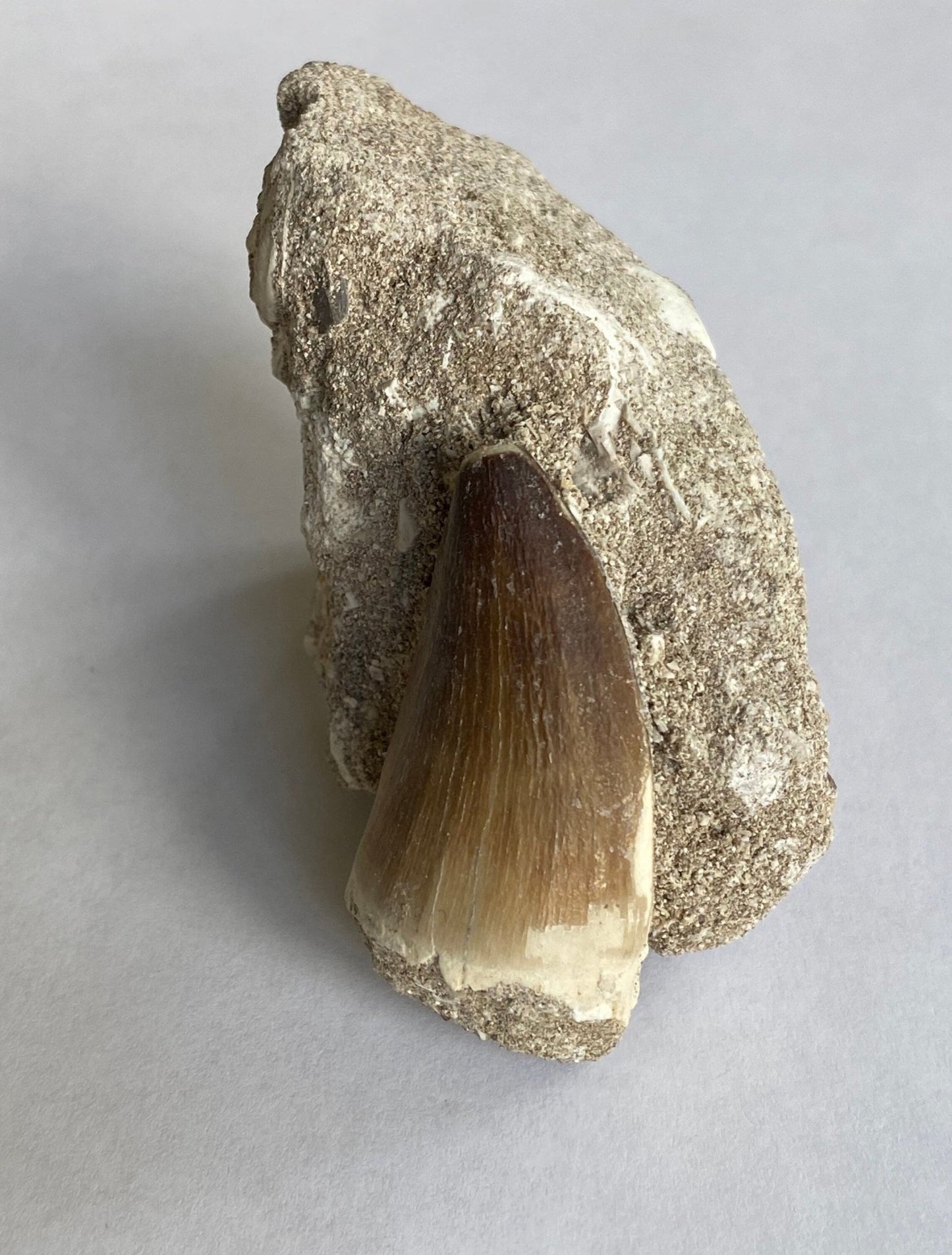Big Mosasaurus tooth in Matrix, genuine fossil tooth
Big Mosasaurus tooth in Matrix, genuine fossil tooth
Couldn't load pickup availability
Shipping rates & times
Shipping rates & times
| Destination | # days** | Starting at |
| Domestic (NL) | 1 - 2 | €6,95 |
| Mainland Europe | +/- 5 | €12,95 |
| Non-EU Europe | +/- 7 | €14,95 |
| USA | 5 - 7 | $35 |
| Australia | +/- 20 | €23,95 |
* Average number of business days in transit
** Other destinations will be calculated automatically during check-out.
*** Shipped with full value insurance
Big Mosasaurus tooth with root nicely displayed on matrix.
Matrix also shows some fossilized bone fragments.
Mosasaurus was one of the biggest predators that lived in the seas during the Cretaceous era.
This particular tooth was found in Kouribga Morocco.
Size of tooth: 4.4cm in length.
With a serpentine body, powerful flippers, and a set of formidable teeth, these apex predators ruled the oceans during the Late Cretaceous period.
Mosasaurs were expert swimmers, using their streamlined forms to hunt a variety of prey, including fish and other marine creatures. Their adaptions for aquatic life, such as flippers instead of legs, made them well-suited to the oceans.
The discovery of these fossils sheds light on the incredible diversity of life that once flourished beneath prehistoric waves.


